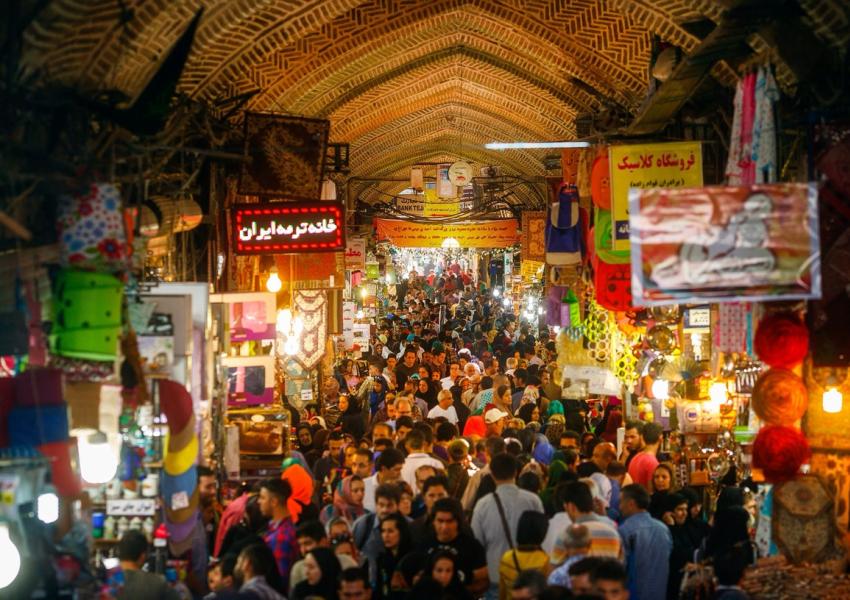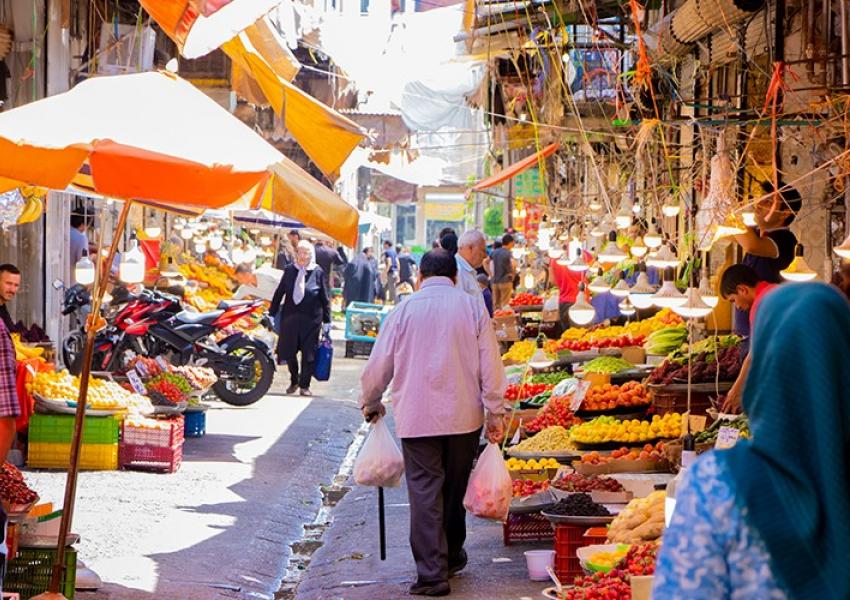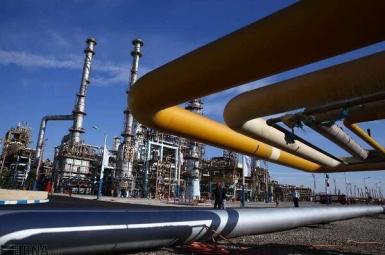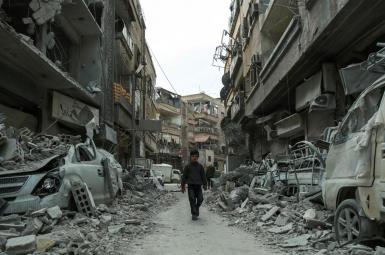
Political Recriminations Over Food Prices As Iranian New Year Looms
Iranians will celebrate the Iranian New Year holidays (Noruz) facing not just the second year of the Covid-19 pandemic but high prices for basic foods like chicken and fruit. The hardship affecting many has become a weapon for hardliners, including Parliament Speaker Mohammad Bagher Ghalibaf (Qalibaf), against the government of President Hassan Rouhani as June’s presidential election nears.
Rouhani will not be eligible to run for a third consecutive term but his critics in the principlist camp seek to undermine any centrist candidate, such as Foreign Minister Mohammad Javad Zarif, associated with the Rouhani government. Hardliners are concentrating on issues related to people's everyday lives rather than foreign policy – despite the link between the United States imposing draconian sanctions in 2018 and the following three years of stagflation.
"Inappropriate distribution of government foreign currency [allocated for imports] and the drop in people's purchasing power has led to the elimination of red meat and chicken from people's tables," Ghalibaf said on Monday [March 15] in an extraordinary parliament special session to examine rising prices ahead of Noruz.
Ghalibaf argued that people saw no results from $8 billion allocated by the government to import basic commodities, a figure in fact applying to the next Iranian year, 2021-2, with $10.5 billion allocated for 2020-1.
Ghalibaf said that Iranians seeing no benefits of such efforts was "one of the country's massive problems." He called for "careful regulation of the market from today [March 15] until the end of the holiday period [April 4]." The speaker charged that the failure in "proper distribution of chicken" was a "symbol of the various problems in the distribution chain and the passivity of the government."

The Iranian market, particularly when it comes to basic food items such as meat, chicken, dairy products, bread, sugar, tea and rice, is highly regulated by the government, which often sets the maximum prices. Whenever prices rise too steeply, governments resort to direct imports, control of distribution and a ban on exports.
As people prepare for Noruz celebrations, long queues in front of shops distributing chicken at 150,000 rials per kg (59 US cents at the market rate), against around 250,000 (one dollar) in unregulated shops, has become quite a common sight. This might seem cheap to Westerners, but a typical wage earner in Iran gets a monthly salary of $100-150.
For Iranians, fruit bowls with a large selection of domestically grown and imported fruit are one necessity of New Year hospitality. High prices and low income, however, have put regulating fruit prices among the government’s pressing agenda items with measures taken to distribute fruit at more reasonable prices through municipality-run food markets.
Some principlists, however, blame the people for expecting too much at a time of international pressures. Remarks by a guest introduced as an "expert" on a state-run TV program on Sunday who accused people of "not being content with what they can have" has caused a stir in social media.
"Fruit has become expensive but there is no reason why we should have several types of fruit on our tables," she said. "Nothing will happen if we don't eat fruit for a week. We should be content with what we have and live with what we can have," she said.
In a reply, Mostafa Tajzadeh, prominent reformist politician and a former deputy interior minister, tweeted on Monday: "They put all their 'yes people' in high places by blocking those who are efficient by their vetting [in elections], waste the country's resources by their adventurist foreign policy, and when inefficiency, corruption, and inflation makes life hard for people they tell them to leave out red meat/ chicken/ fruit from their tables.”
Iran is far from dependent on imports of most agricultural products. According to statistics from the United Nations Food and Agriculture Organization, for the past few years, Iran has been among the top ten producers of many agricultural products including citrus fruit (7th), apples (6th), tomatoes (7th), apricots (3rd), figs (4th) and dates (3rd).
Government officials often blame high prices of agricultural products and shortages on high production costs as well as the monopoly of some brokers who buy cheaply from producers and control supply so as to fetch higher prices ahead of celebratory occasions such as Noruz. Many believe these brokers are untouchable due to the support of the politically influential. Those with political influence have also faced accusations of enjoying special favors: for many years, it has been alleged that Ayatollah Naser Makarem-Shirazi runs a monopoly importing certain products such as sugar, a charge his office has denied.









